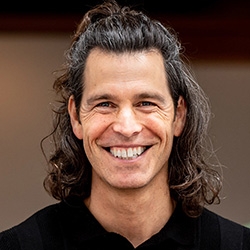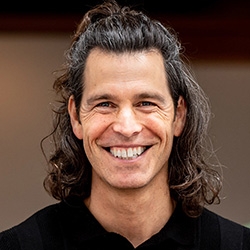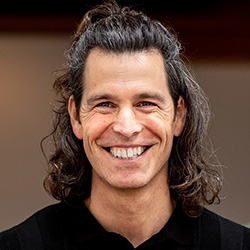
Search Results: assertive
-
-
Awareness of how we're holding our own and others' needs is important to our development. In learning to value needs, we often go through three stages: passive, aggressive/obnoxious, and assertive/mutual. As we learn and grow, we may relate to the following differently: Whose feelings and needs are important, who is responsible for what, how our choices impact others, and consideration for ourselves and others.
-
Ask the Trainer: "At one point in my practice, it was brought to my attention that some people find the use of 'formal NVC' off-putting, or mechanical. Do you have any input or insight into this?"
-
Do you yearn to step forward in leadership, but know you're holding back? Clinical psychologist, organizational consultant, and speaker, Roxy Manning, PhD, shows us that more than external factors, its our internal beliefs and fears that provide the main barrier to moving forward. She does this by taking us through three myths of leadership, and weaves in anecdotes to illustrate how tapping our unique (often lesser recognized) qualities, can be the way forward we've been seeking. Learn ways to move forward, even if at first it appears that (1.) others can "do it better", (2.) you need to be more prepared, or even if (3.) the material you're conveying isn't so original (and has been used many times).
-
Trainer Tip: When we are authentic about who we are, and our preferences, we give everyone and ourselves a better opportunity to open up dialogue about how to meet our collective needs better. We simply express our truth, and in that way we value our own needs as much as those of others.
-
Trainer Tip: It can be painful spending our days pretending we’re not who we are. For example, we may try not to be passionate in our expression because if we think its “too much” for people. This can lead to trying to figuratively to squeeze ourselves into small spaces in life. Alternatively, we can choose who to share our passion with, and speak our truth to. Today, notice what you need and to work actively to meet your needs.
-
Listen to Yoram Mosenzan discuss requests. He asserts that we can make requests of others and that we are making requests of ourselves throughout the day. The thing that has the biggest impact is how I make requests of myself.
-
While someone is upset or hurt they may "listen" to us to gather evidence for a rebuttal, to assert or validate a preconceived idea, and so on. When in this "predatory listening" mode, the "listener's" needs overshadow relational values like understanding, connection, or mutuality. In response to this we can consider our purpose, affirm any positive intent or need in what they say, and ask direct, honest questions.
-
Trainer tip: Demands are more likely to limit the possibilities and create distance between people. The trick to asking something as a request is valuing everyone’s needs equally. When you value everyone’s needs equally, then you are more willing to come to solutions that satisfy everyone. It thus opens possibilities and helps build connection.
-
Trainer Tip: Sometimes the best way to get our need me is to first connect with the needs of another.
-
- Discover how to figure out what you really want, then how to ask for it
- Learn how to make requests with ease and how to guess the requests of others
- Practice strategies for turning ‘demand energy’ into ‘request energy’
- Be able to stand firmly for your needs and assertively ask for what you want
-
- Discern what is preventing your communication style from being effective
- Create a communication style that works
- Resolve everyday conflicts and misunderstandings
- Create a deeper sense of connection, trust, and cooperation
- Heal old wounds between you and others, as well as within yourself
- Be the leader and contributor you want to be in any situation
-
Here we explore variants of conflict patterns in part two (of this two part series) that include: refuting "straw man arguments"; not checking understanding, repeating unhelpful behaviour; repeatedly asking for what's already given; asserting rather than demonstrating responsiveness; assumptions; denying conflict exists; neglecting interdependence; stonewalling; absence of curiosity, humility, respect, empathy or care (even when reflecting).












